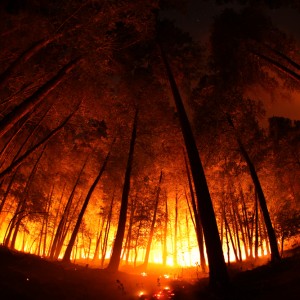The Stream, November 12, 2019: AP Investigation Identifies Hundreds of High-Hazard Dams Across United States
The Global Rundown
An investigation of dams in the United States identifies 1,688 structures as “high-hazard.” Deadly wildfires flare in parched New South Wales and Queensland, Australia. A new proposal by the U.S. EPA looks to limit the science used to determine public health regulations. The government of Thailand tells farmers not to grow off-season rice due to drought concerns. The court date nears for a dispute between Florida and Georgia over oysters in Apalachicola Bay.
“These are like ticking bombs just sitting there, waiting for the wrong conditions to occur to cause catastrophic failure.” –Craig Fugate, a former administrator at the Federal Emergency Management Agency (FEMA), in reference to aging and unsafe dams across the United States. A two-year investigation by The Associated Press found 1,688 high-hazard dams in poor or unsatisfactory condition in 44 states and Puerto Rico. Researchers say the actual number of dangerous dams is likely much higher considering gaps in public records and dam safety ratings. Many of the dams are upstream from homes, businesses, and communities. AP
Latest WaterNews from Circle of Blue
As Legionnaires’ Disease Cases Surge, Lawsuits Pile Up — Can legal liability prompt action where regulation has yet to catch up?
What’s Up With Water – November 11, 2019 — This week’s edition of What’s Up With Water includes coverage on lead in Canada’s drinking water, devastating floods in eastern Africa, and water cuts due to wildfires in California.
HotSpots H2O: Flash Floods Strike Eastern Africa, Displacing 370,000 People — Intense flooding hit several nations in eastern Africa recently, including Somalia, Kenya, and South Sudan. The deluges have affected more than a million people in the region.
By The Numbers
22 Provinces in Thailand that have been asked to not grow rice during the off-season due to below-average water supplies in the country. Officials say current reservoir levels hold enough water for consumption, but not for additional rice-growing. Reuters
Science, Studies, and Reports
New South Wales, Australia, declared a state of emergency on Monday due to “catastrophic” wildfires that have broken out over the past week. The fires, which are affecting the state of Queensland as well, have left three people dead and burned dozens of buildings. NPR
In context: In Australia, Echoes of Past, Glimpses of Future As Country Braces for Hot, Dry Summer.
On the Radar
A new draft proposal by the U.S. Environmental Protection Agency (EPA) would force scientists to turn over all raw data before the EPA could evaluate the conclusions of academic studies. The agency says the new rule would foster transparency and allow independent verification of conclusions. Critics, however, say the proposal limits the science that can be used, and would hamper lawmaking related to clean air and water, as many of these laws rely on studies that include confidential personal health information. The New York Times
For decades, Florida and Georgia have quarrelled over sharing of the Apalachicola-Chattahoochee-Flint river system, which originates in Georgia and flows to the Florida panhandle. A 2013 lawsuit by Florida alleges that overuse of the river by Georgia restricted water flow, permanently devastating oyster fishing in Florida’s Apalachicola Bay, but Georgia says a limit on their water use could be detrimental to its farmers. Case special master Judge Paul Kelly recently heard arguments over the issue, and is preparing an opinion for the U.S. Supreme Court. U.S. News & World Report
Kayla Ritter is a recent graduate of Michigan State University, where she studied International Relations and Teaching English to Speakers of Other Languages. She is currently based in Manton, Michigan. Kayla enjoys running, writing, and traveling. Contact Kayla Ritter






Leave a Reply
Want to join the discussion?Feel free to contribute!